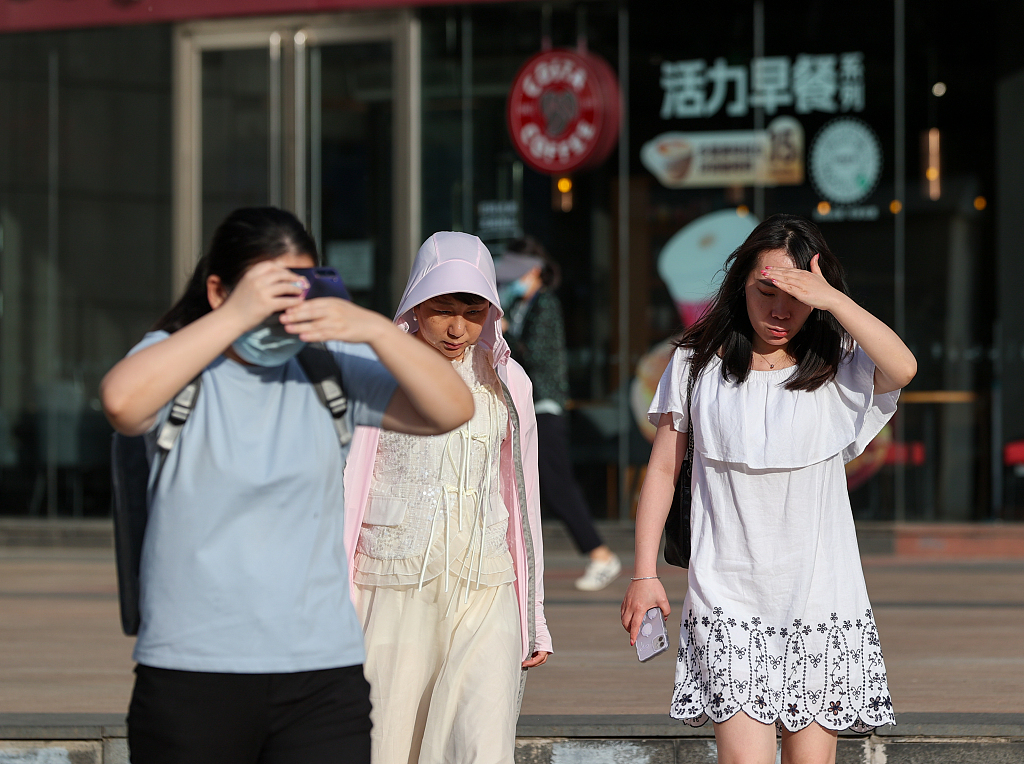A heatwave has swept across many parts of China, with temperatures exceeding 35 degrees Celsius in numerous locations.
On Friday, the meteorological observatory of Turpan City in northwest China's Xinjiang Uygur Autonomous Region raised its orange alert for high temperatures to a red alert, as temperatures could reach as high as 45 degrees Celsius in some areas. Chengdu City in southwest China's Sichuan Province is currently experiencing high temperatures and has issued an orange alert for Saturday. Additionally, East China's Shanghai issued a yellow alert today, with temperatures expected to reach 35 degrees Celsius.
China employs a four-tier, color-coded weather warning system, with red representing the most severe warning, followed by orange, yellow, and blue.
Summer has already begun in most parts of central and eastern China. Out of the 27 municipalities and provincial capitals, 21 have entered the summer season.
However, it seems that summer has arrived a bit early this year. In the areas that have already entered summer, 90 percent of them experienced an earlier onset than usual. Cities such as Wuhan, Changsha, and Chengdu even started summer more than 10 days ahead of schedule.
Hu Xiao, Chief Meteorological Analyst of Weather China, the China Meteorological Administration's online weather service, stated, "Northeast China, which has not yet entered summer, will also accelerate into summer next week." Typically, summer in this region begins in mid to late June, but this year it is expected to arrive earlier.

People were walking under the scorching sun in Beijing, capital of China, on June 7. /CFP
People were walking under the scorching sun in Beijing, capital of China, on June 7. /CFP
The early arrival of summer this year is not an isolated occurrence.
According to Weather China, summer has been arriving earlier and earlier in China for over 50 years. For instance, in Nanchang, the capital of east China's Jiangxi Province, southwest China's Chongqing Municipality, and Yinchuan City, in northwest China's Ningxia Hui Autonomous Region, the average onset of summer in the period of 1991-2020 was more than 10 days earlier compared to 1971-2000.
With the earlier arrival of summer, one may wonder if this year will be even hotter. The National Climate Center of China anticipates that temperatures in most parts of the country will be close to or higher than usual, accompanied by an increase in the number of days with high temperatures in regions such as east China, central China, and Xinjiang Uygur Autonomous Region. This rise in temperatures may be compounded by periodic heatwaves.
Additionally, the occurrence of El Niño, a climate pattern known to elevate global temperatures, has been observed this year and may impact temperatures. The last El Niño event took place in 2016, during which the world experienced its hottest year on record, with temperatures approximately 1.1 degrees Celsius higher than the pre-industrial period. The World Meteorological Organization estimates a 98 percent chance of at least one of the next five years surpassing the temperature record set in 2016, given the presence of an exceptionally strong El Niño during that year.
(If you want to contribute and have specific expertise, please contact us at nature@cgtn.com.)